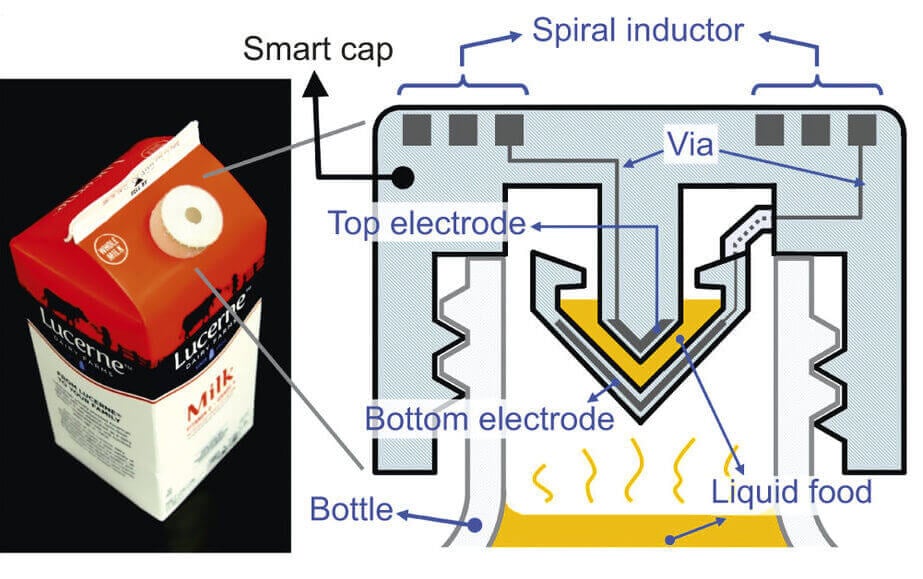Berkeley University research team creates the first printable electrical components and proved their usefulness in smart containers of food.
3D Printing enters the world of food technology with a printable “smart cap” that is reportedly able to detect spoiled food. This presupposes the utilization of basic electrical components such as inductors and electrodes, which Berkeley University incorporated in the cap directly through a 3D printing process. (via Berkeley News)
This basically works as a proof of concept that 3D printing is now entering a stage of more complex and more elaborate creations that may even include sensors, adaptors, capacitors, resistors, wiring and other electrical elements. The particular cap features among else, a wireless sensor that sends information about the condition of the food to WiFi-enabled devices.
The first test of the “smart cap” was done on a milk carton that was left outside the fridge for 36 hours. The cap was able to detect the gradually increasing levels of bacteria, and subsequently send the corresponding electrical signals. In particular, the milk was found to “spoil” by 4.3% in room temperature, while the carton that was kept inside the refrigerator for 36 hours only showed a 0.12% change in the electric signal. (via nature.com)
The way Berkeley researchers managed to print electric components is based on the use of polymers combined with wax that is removed after the printing process is completed. The particular shape and form of the metal determined its component type. The team managed to print tiny capacitors, inductors, resistors and LC tanks and put them inside a bottle cap, only to prove how useful this concept can be.
While we are still far from being able to print our own smartphone in a 3D printer, we can definitely replace the inadequate and sometimes unreliable expiration date tags, and implement “smart” food quality control circuits instead or in parallel. The Berkeley team will keep working on this technology, exploring possible applications of it in the health sector. Ideas include implantable devices with embedded transducers that will be able to monitor blood pressure, drag concentration and muscle strain.
License: The text of "3D Printed Smart Containers Detect Spoiled Food" by All3DP is licensed under a Creative Commons Attribution 4.0 International License.
